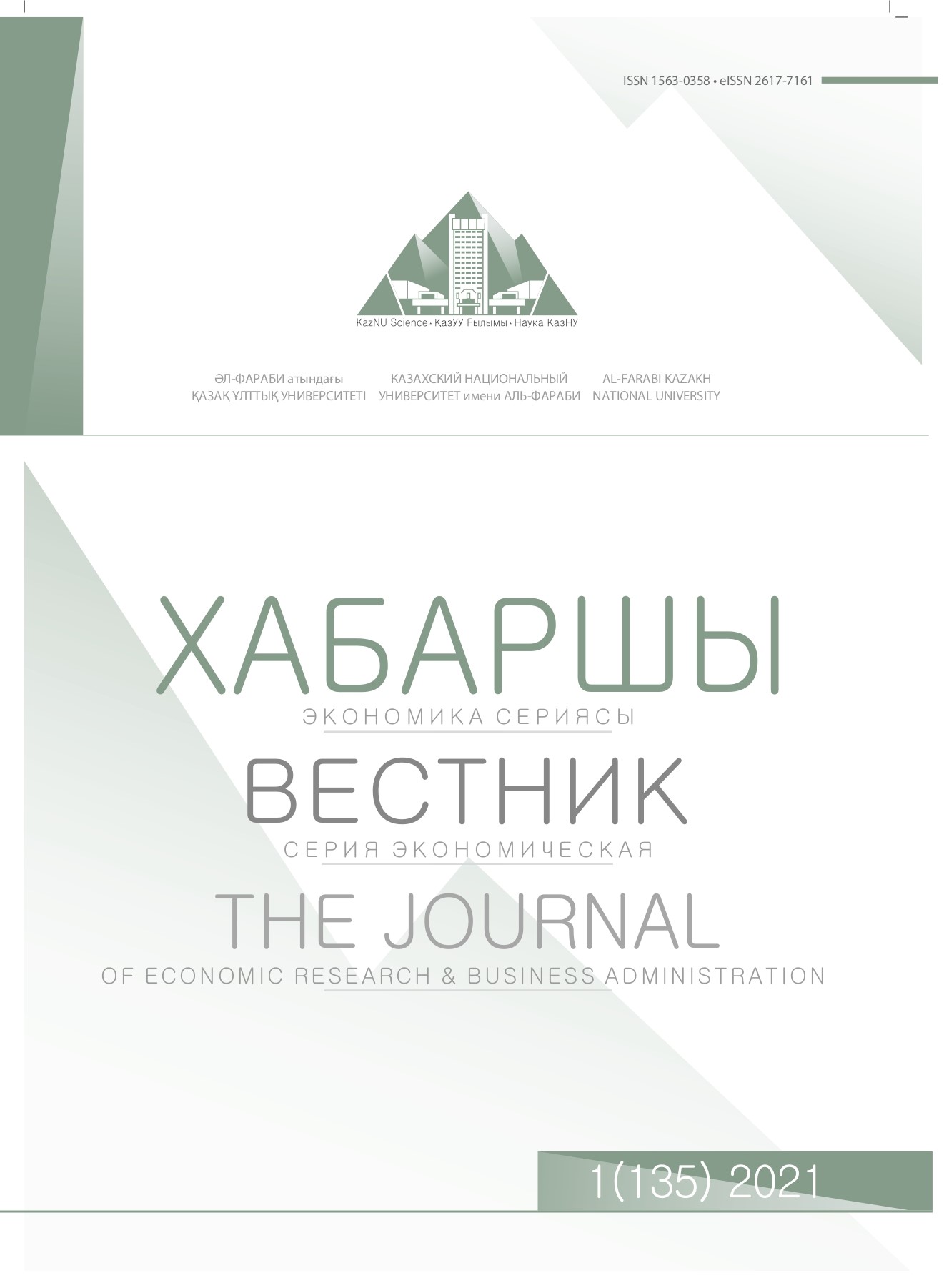Есеп беретін мемлекеттік қызметі үшін еңбекақы төлеудің жаңа жобасы шығындарының тиімділігін талдау
DOI:
https://doi.org/10.26577/be.2021.v135.i1.01Аннотация
Мақалада мемлекеттік қызметшілерге еңбекақы төлеудің жаңа жүйесі жобасының мысалында
мемлекеттік бастамалардың айқындығы мен есеп берушілігінің негізгі аспектілері қарастырылған.
Ол үшін автор трансформациялық процестерді жетілдіру бойынша ұсыныстарды әзірлеу
мақсатында үш жылдық кезең мен екі пилоттық орган призмасындағы жоба шығындарының
тиімділігіне талдау жүргізді. Автордың диссертациялық зерттеудің тұжырымдамалық моделінің
факторлары негізінде шығындардың тиімділігін талдау әдісін ескере отырып, арнайы формула
әзірленді және есептеулер жүргізілді. Осылайша, уәкілетті орган (жобаны әзірлеуші) «Адами
капитал» факторы бойынша бұқаралық ақпарат құралдарында белгілейтін әсерлерден басқа,
зерттеу, сондай-ақ аспектілердің неғұрлым кең шеңберін, атап айтқанда «Көшбасшылық»,
«Стратегия», «Ұйым», «Ресурстар» сияқты факторларды «Халыққа бағдарлану» призмасы арқылы
қамтиды. Талданып отырған кезеңде қызметтің тиімділігіне айтарлықтай оң өзгерістер болған
жоқ. Ал жұмыстың жекелеген бағыттары бойынша («Ұйым», «Халыққа бағдарлану» факторы)
нәтижелердің нашарлауы байқалады. Осылайша, автор тұтастай алғанда жергілікті атқарушы
органдардың қызметін еңбекақы төлеу қорының екі есе өсуіне қатысты тиімсіз деп түйіндейді.
Осыны және жұмыста анықталған «тар жерлерді» ескере отырып, қызметті жақсарту бойынша
бірқатар ұсынымдар, оның ішінде заңнамалық бастамалар ұсынылады. Тұтастай алғанда, зерттеу
нәтижелері тікелей практикалық мәнге ие, өйткені жаңа еңбекақы төлеу жүйесін басқару
кезеңінде уақтылы өзгерістер жүргізу мақсатында қалған пилоттық органдарға талдауды
масштабтау үшін платформа болып табылады.













